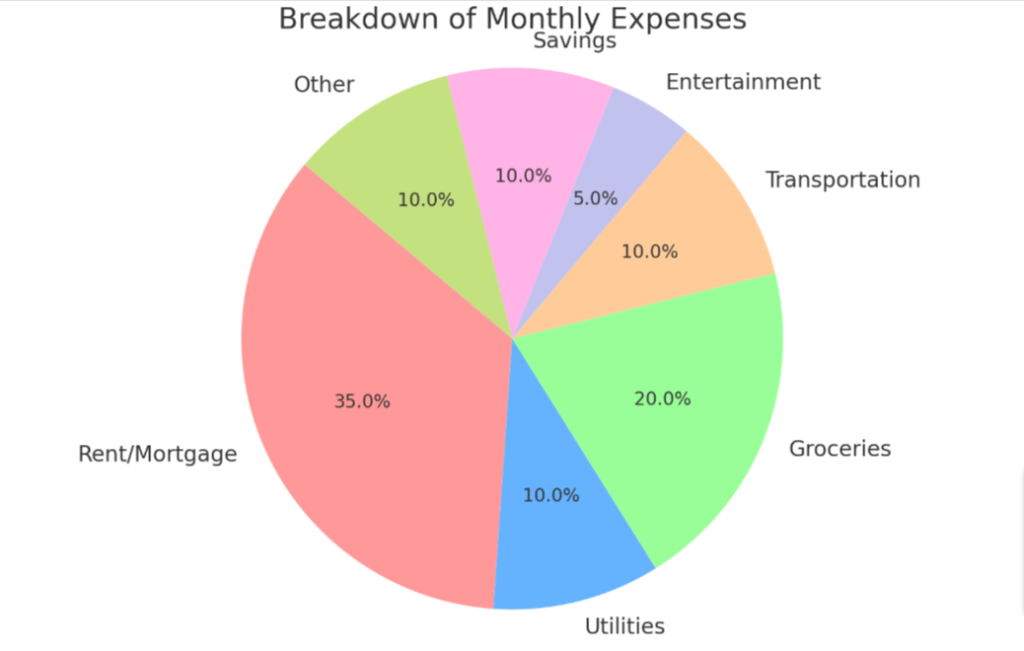Decoding Taxes for Freelancers: Income Insights
Navigating the tax landscape as a freelance writer can feel like wading through muddy waters. Did you know 35% of the U.S workforce consists of independent contractors, many of whom are writers? This blog post aims to demystify what portion of your freelance writing income is taxable and what’s not.
Ready to clear things up? Let’s dive in!
Key Takeaways
- Freelance writers have various forms of taxable income, including payment for articles, royalties, blogging or affiliate marketing income, grants and awards, rents from property owned by their writing business, and payment for speaking engagements or workshops.
- It is crucial for freelance writers to accurately calculate their profit or loss in order to manage their taxable income. This includes keeping track of earnings and expenses throughout the year and reporting them on Schedule C of the tax return form.
- Freelancers need to make estimated quarterly tax payments based on their total income, including freelance writing earnings. This helps avoid penalties at the end of the fiscal year and ensures compliance with IRS rules.
Understanding Freelance Writing Income
Freelance writing income can be classified as taxable, and it is important for writers to understand the different types of taxable income they may earn. Additionally, determining profit or loss is crucial when calculating tax liabilities, and estimating quarterly tax payments should be taken into consideration.
Types of taxable income for freelance writers
Freelance writers encounter various forms of taxable income. The following list highlights some common types:
- Payment for articles, blogs, and other written content: This is your primary source of income as a freelance writer and it’s fully taxable.
- Royalties from published books or other publications: These can generate a significant amount of income for some writers and are also taxable.
- Income from blogging or affiliate marketing: If you’re running a blog on the side and making money through advertisements or sponsorships, this counts as taxable income.
- Grants and awards: Even though these might feel like “free money”, the IRS considers them as income which needs to be reported.
- Rents from property owned by your writing business could also factor into your freelance writing income.
- Payment for speaking engagements or workshops: If you’re paid for public speaking or running a workshop related to your writing expertise, this is also considered as taxable income.
Determining profit vs. loss
Calculating profit and loss is crucial for freelance writers in managing their taxable income. Profits are made when the revenue from writing projects surpasses all related business expenses, which includes costs like office supplies or travel to client meetings.
A fiscal year ending with higher expenses than income signals a potential loss.
The IRS requires that freelancers report both their profits and losses on Schedule C of the tax return form. Keep careful track of your earnings and outgoings throughout the year to ensure accurate reporting to avoid penalties for underreported earnings or inflated deductions.
This ongoing record-keeping will also help in preparing estimated quarterly tax payments based on current financial performance, reducing end-of-year surprises.
Estimated quarterly tax payments
Freelancers often confront the concept of estimated quarterly tax payments. The Internal Revenue Service (IRS) operates on a pay-as-you-go system. This method means if you are earning as a freelance writer, you must make regular tax payments throughout the year.
Your total income, including your freelance writing earnings, determines the amount of these installments. To calculate this correctly, form 1040-ES comes into play which helps determine how much to set aside for each payment and when they’re due which usually are April 15th, June 15th, September 15th, and January 15th each year.
Meeting these deadlines can help avoid penalties at the end of the fiscal year as well as maintain a compliant freelance business with IRS rules.
Tax Deductions for Freelancers
Freelancers can take advantage of various tax deductions to reduce their taxable income, including home office expenses, subscriptions, travel costs, unpaid invoices, online presence expenses, and depreciation on equipment.
Home office deductions
Freelance writers can take advantage of home office deductions to reduce their taxable income. Here are some expenses that may qualify for this deduction:
- Rent or mortgage payments for the space used as a home office
- Utilities, such as electricity and internet, directly related to the home office
- Office supplies and equipment, like computers and printers
- Repairs and maintenance of the home office area
- Homeowner’s insurance premiums specifically for the home office
- Property taxes allocated to the home office space
Subscriptions
Subscriptions can be a tax-deductible expense for freelance writers. This includes subscriptions to magazines, journals, online platforms, and other publications that are necessary for your writing business.
By keeping track of these expenses, you can reduce your taxable income and potentially lower your overall tax liability. It’s important to maintain accurate records and receipts of all your subscriptions so that you can easily report them on Schedule C when filing your taxes.
Taking advantage of this deduction can help maximize your deductions and keep more money in your pocket at tax time.
Travel expenses
Freelance writers often have the opportunity to travel for work, whether it’s attending conferences, meeting with clients, or conducting research. The good news is that many travel expenses can be deducted on your taxes.
This includes transportation costs like airfare or mileage, as well as lodging and meals while you’re away. Just remember to keep detailed records of your expenses and make sure they are directly related to your freelance writing business.
By taking advantage of these deductions, you can lower your taxable income and potentially increase your overall profit.
Unpaid invoices
Freelance writers often struggle with unpaid invoices, which can impact their income and tax liability. When clients fail to pay for completed work, it’s important to understand how this affects your taxable income.
Unpaid invoices are still considered part of your business earnings for tax purposes, even if you haven’t received the payment yet. This means that you’ll need to report these amounts as income on your Schedule C when filing your tax return.
Online presence
Having a strong online presence is essential for freelance writers. It not only helps to showcase your work and attract potential clients, but it also allows you to establish yourself as a professional in the industry.
Building an online portfolio or website where you can display your writing samples and provide contact information is a great way to start. Additionally, actively engaging on social media platforms relevant to your niche can help you connect with other professionals and stay updated on industry trends.
Remember to maintain a consistent brand image across all your online platforms and use relevant keywords that potential clients may search for when looking for freelance writers like yourself.
Depreciation on equipment
Freelance writers often need specialized equipment to complete their work, such as computers, printers, and cameras. The cost of this equipment can be deducted from taxable income through depreciation.
Depreciation allows freelancers to gradually deduct the expense of their equipment over its useful life instead of all at once. This means that each year, a portion of the equipment’s value can be subtracted from the freelancer’s taxable income.
By taking advantage of depreciation on equipment, freelance writers can lower their overall tax liability and keep more money in their pockets.

Self-Employment Taxes for Freelancers
Learn about the difference between income and self-employment tax, and find out how to pay estimated taxes quarterly to stay on top of your freelance tax obligations.
Difference between income and self-employment tax
Income tax and self-employment tax are two different types of taxes that freelancers need to understand. Income tax is the tax you pay on your overall earnings, including any income from freelance writing.
It is based on your taxable income, which is calculated by subtracting any allowable deductions or credits from your total earnings. On the other hand, self-employment tax is specifically for individuals who work for themselves and have a net profit of $400 or more in a year.
It covers Social Security and Medicare taxes, which would normally be paid by an employer if you were an employee. Freelancers are responsible for paying both income tax and self-employment tax throughout the year.
Paying estimated taxes quarterly
Freelance writers must pay their estimated taxes on a quarterly basis. Here are the steps to follow:
- Calculate your income: Determine how much you’ve earned as a freelance writer during the quarter.
- Estimate your tax liability: Use the IRS guidelines to calculate how much you owe in taxes based on your income.
- Complete Form 1040-ES: Fill out this form to report your estimated tax payments for the quarter.
- Make your payment: Submit your estimated tax payment to the IRS either online or by mail.
- Keep accurate records: Maintain detailed records of your estimated tax payments for future reference and documentation.
- Repeat quarterly: Remember to repeat this process every quarter to stay on top of your tax obligations.
Finding a Tax Professional and Resources for Freelancers
Discover the importance of accurate record-keeping, find tips for filing your tax return, and explore valuable resources for freelance writing taxes. Don’t miss out on maximizing your deductions and minimizing your taxable income!
Importance of keeping accurate records
Keeping accurate records is essential for freelance writers to effectively manage their finances and meet their tax obligations. Accurate records help ensure that all income and expenses are properly accounted for, making it easier to determine taxable income and claim deductions.
By keeping detailed documentation of invoices, receipts, and any other financial transactions, freelance writers can save time and stress when it comes to filing their tax returns.
Additionally, accurate records provide a clear picture of the business’s performance over time, helping freelancers make informed decisions about budgeting, pricing, and overall financial planning.
Filing your tax return
Filing your tax return is an important step in managing your freelance writing income. It ensures that you are fulfilling your tax obligations and reporting accurate information to the IRS. Here are some key things to keep in mind when filing your tax return as a freelance writer:
- Gather all necessary documents, such as 1099 – MISC forms, invoices, and receipts for business expenses.
- Determine which tax form to use – most freelancers will use Schedule C to report their business income and deductions.
- Calculate your net profit or loss by subtracting your business expenses from your total income.
- Fill out all sections of the tax form accurately, including personal information, income details, and deductions.
- Pay attention to any special deductions or credits that apply to freelancers, such as the home office deduction or self-employment tax deduction.
- Double – check all calculations and review the completed form for any errors or missing information.
- File your tax return by the deadline – for most individuals, this is April 15th of each year; however, deadlines can vary depending on certain circumstances.
Utilizing tax professionals and resources
Tax professionals and resources can be incredibly helpful for freelance writers when it comes to navigating the complexities of taxes. They are knowledgeable about the latest tax laws, deductions, and credits that may apply to your situation.
Whether you choose to work with a certified public accountant (CPA) or use online tools provided by reputable organizations like the IRS, these resources can assist you in accurately reporting your income and expenses.
By seeking guidance from tax professionals and utilizing available resources, you can ensure that you meet your tax obligations while maximizing any potential deductions or credits.
FAQs for freelance writing taxes
It’s quite common for freelance writers to have queries about their taxes. Below is a list of frequently asked questions and their respective answers.
| Question | Answer |
|---|---|
| What’s the self-employment tax rate? | The self-employment tax rate is 15.3%. This consists of two parts: 12.4% for social security, and 2.9% for Medicare. |
| Are my expenses tax-deductible? | Yes, expenses directly related to your freelance writing business are usually tax deductible. This includes home office expenses, travel costs, and subscriptions, among others. |
| Should I pay taxes quarterly or annually? | As a freelancer, it’s typically required to pay estimated taxes on a quarterly basis. |
| Can I deduct unpaid invoices on my taxes? | Yes, you can write off unpaid invoices as bad debt if you’ve previously included the amount in your income. |
| What should I do if my profit is less than my deductions? | If your business expenses exceed your income, you can report a loss on your tax return, which may help reduce your taxable income. |
Conclusion
In conclusion, understanding what types of freelance writing income are taxable and what can be deducted is crucial for freelancers. By keeping accurate records, paying estimated taxes quarterly, and utilizing tax professionals and resources, freelance writers can navigate their tax obligations with confidence.
With proper knowledge and planning, freelancers can maximize deductions and minimize their tax liability while staying compliant with IRS rules.

